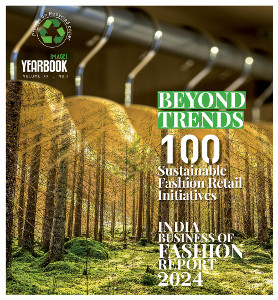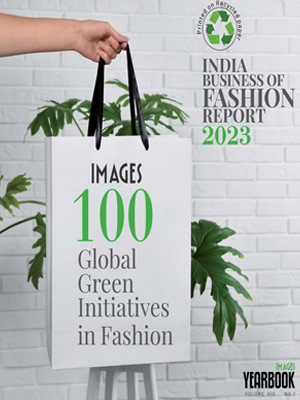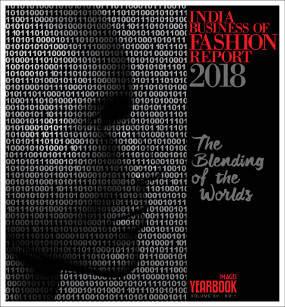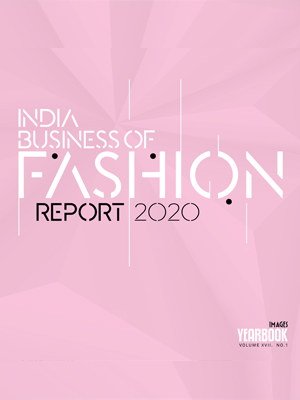Description
Dear Readers,
It has been rightly said that sustainability is intuitively understood, yet has no coherent definition. It is context dependent and situational and has different meanings for different people. In the context of fashion retail, sustainability simply translates into preserving the environment, but away from the glitz and glamour of the world of clothes, the fashion retail industry has a dark, gritty side. It has the dubious distinction of being one of the largest polluters in the world today, and according to a study by WHO, contributes to nearly 10% of the global carbon emissions. Consumers are buying more, paying less and discarding faster than ever before. In response, clothes are being produced by the bulk and usingcheaper raw materials, in a bid to make fast profits. The Ellen Macarthur Foundation, a United Nations Environment Programme partner, has estimated that a truckload of abandoned textiles is dumped in landfill or incinerated every second.
However, every cloud has a silver lining. On the flip side of this dismal story is the beautiful tale of the rise of the sustainable fashion market. This segment of the industry has seen significant growth in recent years, as attitudes toward environmentalism have changed. Brands and retailers, alarmed at the increased rate of pollution are rapidly changing stance, shifting to sustainable methods of sourcing and production. As consumers are waking up to the cause of preserving the planet for future generations, the ‘ethical fashion market’, as it is being dubbed, is gaining popularity. This segment is expected to grow to 9.7% by 2030 and products marketed as sustainable are expected to grow 5.6 times faster than their regular counterparts. Studies show that the Asia Pacific region accounts for 36% of the global ethical fashion market, the largest global share.
It is keeping in mind this pivotal, transformational moment that we are introducing the second edition of IMAGES Group’s sustainability book. Beyond Trends: 100 Sustainable Fashion Retail Initiatives is an insightful and timely book that studies change in consumer behaviour, leading to a makeover for the fashion retail industry. Once solely focused on style and trends, this industry is waking up to the clarion call for adoption of sustainable and circular practices.
As we stand at the intersection of fashion and responsibility, our book serves as a guiding light, illuminating the path towards a more sustainable future for the industry.
Within these pages, readers will discover a wealth of knowledge and expertise from leading voices in the field. From the intricate complexities of supply chain management to the innovative solutions driving circularity and ethical practices, this book offers a comprehensive exploration of the multifaceted challenges and opportunities facing fashion retailers today.
But beyond mere analysis, this book is a call to action. It challenges us to rethink our approach to fashion, to re-imagine the way we design, produce, and consume clothing. It reminds us that sustainability is not just a trend but an imperative — a fundamental shift in mindset and practice that is essential for the well-being of our planet and its people.
This 20th edition of our annual Business of Fashion Report is a green edition, which in keeping with our theme is printed using Favini Shiro Echo, an environmental paper with 100% recycled fibres – from cover to cover. Shiro Echo paper is CO2 emissions neutralised, and all raw materials are sourced from controlled and certified sources. Do take a look on this page to view the official certification.
The book presents our discerning readers with a compilation of retailers, brands, and companies that deeply embrace and actively implement sustainability principles. While the responsibility of making mindful purchases ultimately rests with the consumer, we have endeavored to simplify this process by curating this list. Through our exploration of sustainability, we have come to recognize that consumers wield the greatest influence as the primary agents of change. They have the capacity to guide us toward a fashion retail environment that is more mindful and compassionate.








